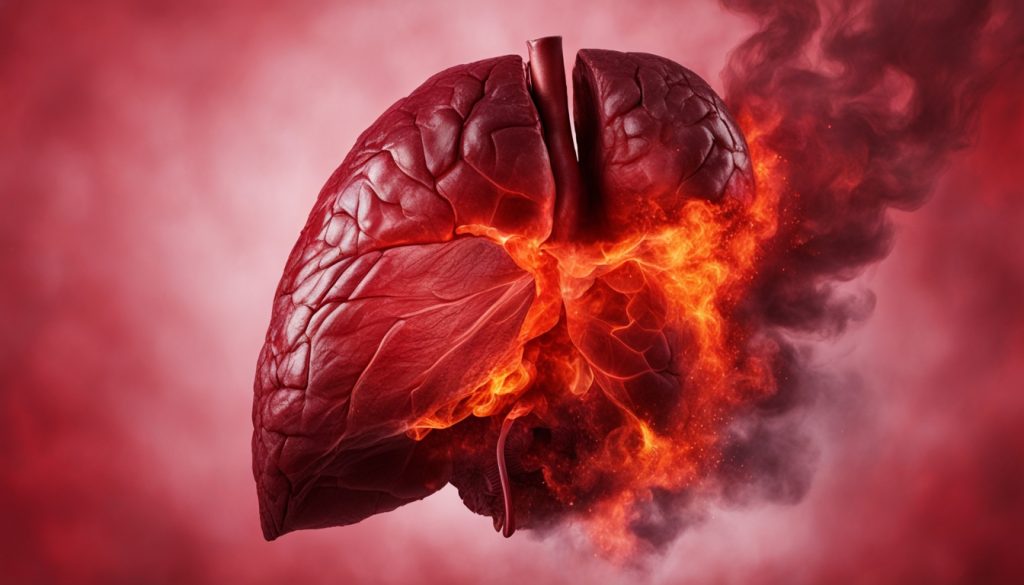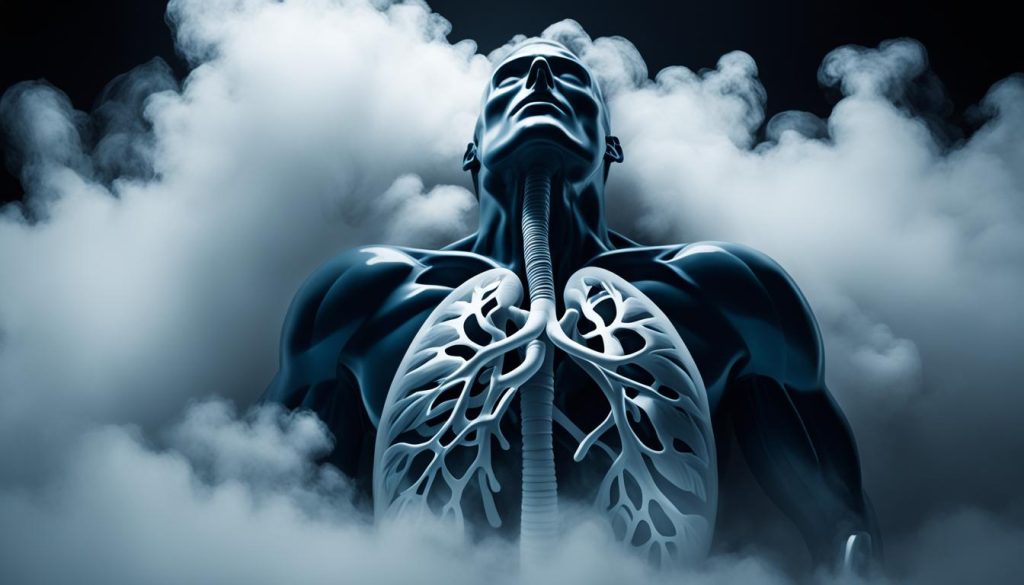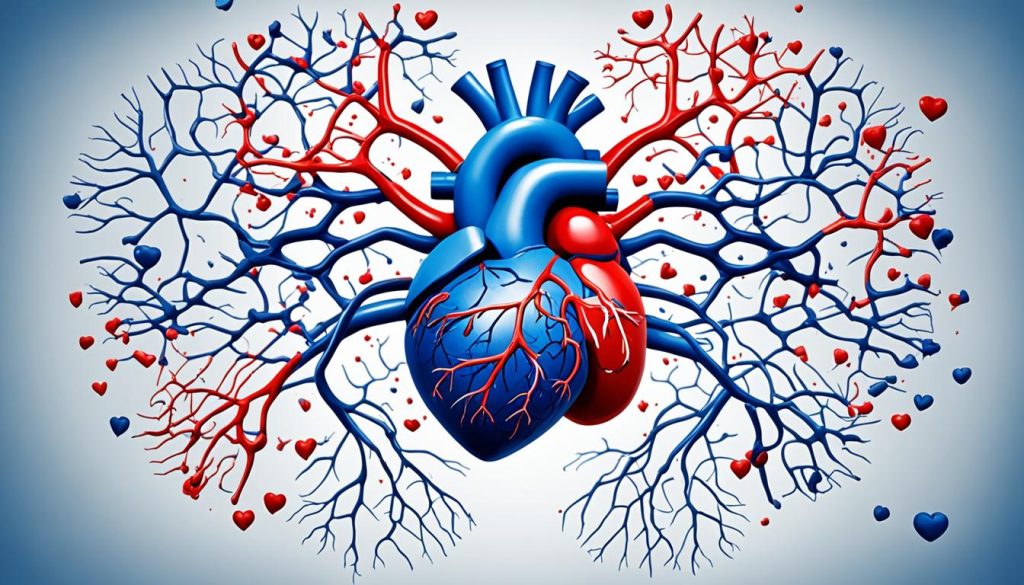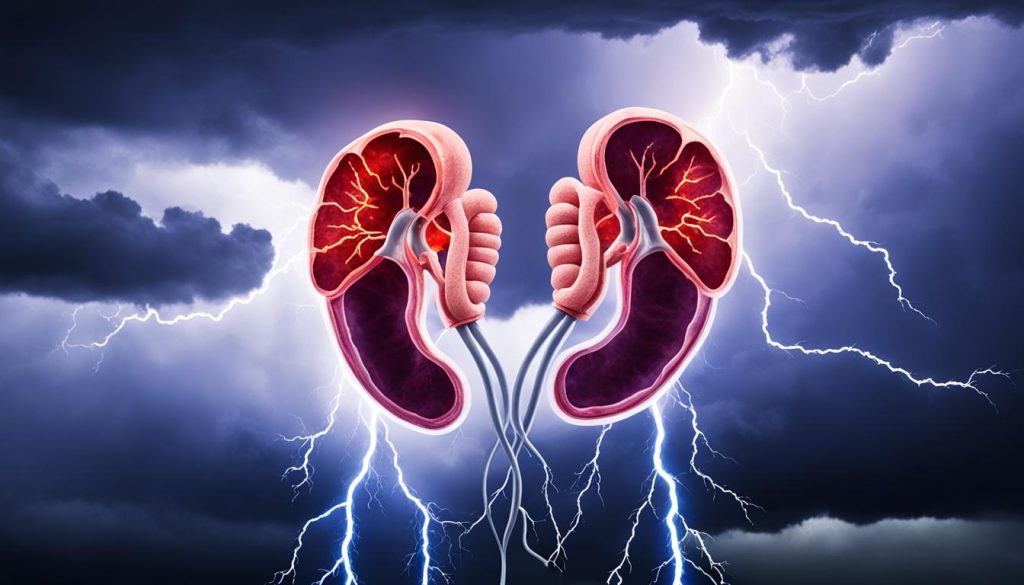Have you thought about how feelings can impact your health? It’s not just about being happy or sad. Your emotions deeply affect how you feel physically. Feelings like anger, grief, worry, and stress can weaken our body’s different parts. This can lead to bad effects on our health. It’s key to know how our emotions link to our physical health to stay well.
This article looks at how feelings can hurt our organs and body systems. It shows why keeping our emotions in check is important for staying healthy. We’ll get to know how our feelings influence our health.
Key Takeaways:
- Emotions have a significant impact on our physical health and well-being.
- Negative emotions, such as anger, grief, worry, stress, and fear, can weaken different parts of our body.
- The mind-body connection plays a crucial role in understanding the emotional effects on our physical health.
- By maintaining emotional balance, we can promote optimal well-being and lead healthier lives.
- Exploring the relationship between emotions and physical health can empower us to take control of our wellness.
Anger Weakens Your Liver
Anger can actually harm your liver. Studies show that being angry all the time or showing it too much can hurt your liver. It can even make your liver not work well.
The liver is very important for cleaning toxins out of your body. It also helps keep you healthy. So, it’s vital to handle your anger in a healthy way.

Your liver filters toxins, keeps nutrients safe, and helps with digesting fats. When you’re angry, your body makes too much stress hormone. This puts a lot of stress on your liver.
Too much anger can cause your liver to get inflamed. This can hurt it over time. People who are often angry might be more likely to get liver disease.
It’s crucial to manage your anger for your liver’s sake. Things like talking to someone, meditating, or doing yoga can help a lot. They can make you less angry and keep your liver healthier.
Using these anger management tips can save your liver from anger’s damage. It helps keep your liver in good shape.
Grief Weakens Your Lungs
The Impact of Grief on Lung Health
Grief really can affect your lung health. Long-lasting and unaddressed grief may make your lungs weaker. Plus, it could up your chances of having breathing issues. When you’re really sad, it can change a lot of things in your body. That includes your breathing system. It’s good to know that how you feel and your breathing are connected. This info is important for folks going through tough times of loss. It’s also helpful for doctors wanting to help.

The lungs are key to our health because they give us oxygen and take out carbon dioxide. When we’re hit by grief, our lungs might not work right. This could mean feeling like you can’t catch your breath or having a tight chest. You might also find less energy for physical work.
Studies have even linked extreme grief to more lung inflammation and stress. This can make breathing problems worse and open the door to sickness. It could even up the risk of getting conditions like asthma or COPD.
Focusing on grief management can really keep your lungs healthy. Things like talking to a counselor or joining a support group can make a big difference. Being mindful and doing breathing exercises might also help you feel better. It’s all about finding ways to deal with your feelings that work for you.
Grief is hard, but looking after your emotions and your lungs is worth it. Recognizing how grief can hurt your lungs is a start. Then, finding ways to cope can really help you breathe easier. This doesn’t just help your body; it can also lift your spirits.
Worry Weakens Your Stomach
The effects of worry on the digestive system
Too much worry and anxiety can hurt your stomach and digestive system. It might cause ulcers, irritable bowel syndrome (IBS), and acid reflux. Stress hormones released during worry can mess up your stomach, leading to inflammation and pain. Also, worrying can make you eat poorly, like eating too much or missing meals. This makes digestive issues worse.
Keeping your stomach healthy means dealing with worry well. Try stress reduction methods like meditation and deep breathing. Also, relax and enjoy activities that calm you. Eating a healthy diet is key too. Include plenty of fiber, probiotics, and nutrients for a happy gut and better digestion.

Taking steps to handle worry can greatly help your digestion. By focusing on both the mind and gut, you can find balance. This harmony between your emotions and gut improves stomach and mental health.
Stress Weakens Your Heart and Brain
Chronic stress isn’t good for your heart or brain. It can cause high blood pressure, heart disease, and even stroke. Moreover, it can lead to a decline in your brain’s health. To be healthy, it’s essential to know how stress affects these important parts of your body. Learning to manage stress can help keep your heart and brain in the best shape.
The relationship between stress and cardiovascular health
Too much stress can harm your heart. It makes your body release hormones like cortisol and adrenaline. These can make your heart work faster and raise your blood pressure. If this happens a lot, it could lead to high blood pressure and heart disease.
Stress over time can also cause plaque to build up in your arteries. This plaque makes it hard for your heart to get enough blood. It can lead to heart attacks and heart disease. So, keeping stress under control is key to keeping your heart healthy and preventing these problems.
The relationship between stress and neurological health
Stress doesn’t just affect your heart. It can really hurt your brain too. Too many stress hormones can damage brain cells and even shrink your brain.
Long-term stress can mess up the way your brain cells talk to each other. This can cause memory loss, trouble concentrating, and other brain function issues. Plus, it can make you more likely to get diseases like Alzheimer’s or Parkinson’s.
Keeping stress low is really important for your brain as you get older. You can do this by practicing mindfulness, meditating, and staying active. These things help protect your brain from the bad effects of stress.

To lower the risk to our heart and brain, it’s important to deal with stress properly. Trying activities like deep breathing, regular exercise, and talking to friends can help. Also, it’s good to use strong and healthy ways to handle stress. This way, we can help keep our heart and brain healthy and enjoy better overall health.
Fear Weakens Your Kidneys
Fear and chronic anxiety can really hurt your kidneys. Research shows that issues like PTSD increase the chance of kidney disease. It’s important to know how fear affects your kidneys. Learning to manage fear is key for good kidney health.
Fear triggers our body to release stress hormones like cortisol and adrenaline. These can tighten blood vessels, raise blood pressure, and lower blood flow to the kidneys. This can damage the kidneys over time.

It’s essential to manage fear to keep your kidneys healthy. Techniques like deep breathing, meditation, and therapy can lower anxiety. This, in turn, helps your kidneys.
Also, leading a healthy life with exercise, a good diet, and lots of water is vital for kidney health. If fear or anxiety is too much, reach out for professional help. Taking care of yourself in these ways is key to living well.
Understanding how fear affects our kidneys and acting proactively can help. Working on our emotional health is as crucial as our physical health. It’s all about connecting your mind and body.
Conclusion
Our feelings really affect our health and well-being. Feelings like anger, grief, worry, stress, and fear can harm our body. This happens because these emotions weaken parts of our body. They make us more likely to have health issues. It’s very important to know how our mind and body are connected.
We can get healthier and enjoy life more by handling our feelings well. It’s as important to take care of our emotional health as our physical health. Together, they make up our well-being.
This article showed us how emotions can hurt specific parts of our body. They can harm our liver, lungs, stomach, heart, brain, and kidneys. But, we can change this. By learning about how our feelings affect our body, we can be in control.
We should focus on being emotionally and physically well. This involves managing our feelings, caring for ourselves, and getting help when we need it. Keeping our emotions in check is key to being very healthy and full of life.




